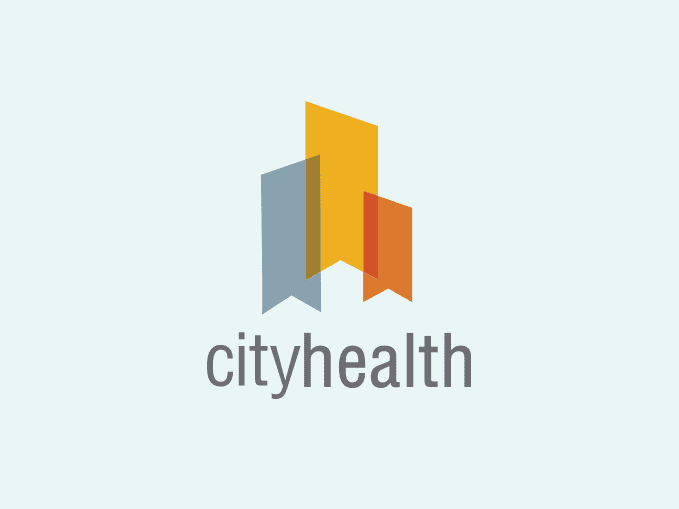WASHINGTON, D.C. – A new report from CityHealth finds that U.S. cities are making considerable strides in adopting policies that improve health and quality of life. In the areas assessed by CityHealth, a total of 35 new policy advances occurred since the last annual report was published, impacting over 22 million lives. Many of these reforms occurred in the area of tobacco and e-cigarette regulation, in the wake of new concerns about the safety of those products, especially for youth. Complete Streets policies also saw major gains, as experts have sounded the alarm that pedestrian deaths have increased 35 percent in the last decade.
CityHealth, an initiative of the de Beaumont Foundation and Kaiser Permanente, helps cities achieve better results for their residents by advancing a menu of nine proven policies that improve people’s day-to-day quality of life, well-being and health. These policies are based in research, backed by qualified experts, and shown to have bipartisan support, making them rich opportunities for cities to pursue.
Localities are assessed according to the strength and number of the policies they have in place. To learn more about how your city performed, visit www.cityhealth.org.
“We found that cities are making substantial progress in passing the policies we recommend for better quality of life and stronger, more vibrant communities,” said Shelley Hearne, DrPH, President of CityHealth. “City leaders are taking care of business and showing the nation how to deliver results that can make their residents safer, healthier, and more productive.”
“At the same time, more work is needed to give every American an equitable chance for a healthier, more vibrant life. Every unearned gold medal represents an opportunity for leaders to improve quality of life and well-being, and help their communities thrive.”
KEY FINDINGS
For the last three years, CityHealth has annually scored cities on their progress in adopting nine key policies that advance health and well-being, using gold, silver, and bronze medals. Cities’ overall medal results are based on the combined quality and quantity of policies in place in each category. In 2019, a total of eight cities received an overall gold medal, including newcomers Dallas, San Antonio, San Francisco, and Seattle. These cities join Boston, Chicago, Los Angeles, and New York, which earned gold in 2018.
Six additional cities across the country improved their overall medal scores. Atlanta and Denver moved from bronze to silver; and Detroit, Fort Worth, Las Vegas, and Tucson moved from no medal status to bronze.
For the first time, three-quarters of the cities (30 of 40) earned an overall medal. Just two years ago, fewer than half of all major U.S. cities (19 of 40) received an overall CityHealth medal. While some cities are making great strides, others have work to do, as 10 cities still don’t have strong enough policies to warrant an overall medal.
OVERALL RESULTS
Among the nation’s 40 largest cities, there were:
-
8 gold medal cities;
-
8 silver medal cities;
-
14 bronze medal cities; and
-
10 cities that did not earn a medal.
CityHealth’s analysis included nine policy recommendations, listed below. Cities were assigned a gold, silver, bronze, or no medal, depending on the strength of their policies. To see the full results for each city, visit www.cityhealth.org. For a full description of how we awarded medals for each policy, please find our methodology at www.cityhealth.org/research.
Gold
Boston
Chicago
Los Angeles
New York
Dallas*
San Antonio*
San Francisco*
Seattle*
Silver
Kansas City
Long Beach
Sacramento
San Diego
Washington
Atlanta*
Denver*
San Jose*
Bronze
Albuquerque
Austin
Baltimore
Charlotte
Fresno
Houston
Louisville
Milwaukee
Portland
Detroit*
Fort Worth*
Las Vegas*
Philadelphia*
Tucson*
* = overall medal advancement
AFFORDABLE HOUSING
Inclusionary zoning is an affordable housing policy tool that requires developers to set aside a portion of housing units for low- and moderate- income residents. Affordable housing promotes diverse, inclusive neighborhoods and positive mental health, reduces crowding and exposure to environmental hazards, and and frees up resources for individuals to pay for other critical needs
Thirteen of 40 cities received a medal for inclusionary zoning policies, including 3 gold, 6 silver, and 4 bronze.
COMPLETE STREETS
Complete streets policies prioritize safety by incorporating all forms of transportation, from walking, to biking, to driving, or taking the bus. These policies expand economic growth, improve individuals’ health, and can save lives.
Thirty-six out of 40 cities received a medal for complete streets policies, with 29 gold, and 7 silver. No city earned bronze. Charlotte, Louisville, Milwaukee, Portland, San Antonio, Seattle, and Tucson adopted new complete streets policies, each earning a gold medal.
EARNED SICK LEAVE
Earned sick leave policies reduce the spread of contagious illnesses, increase employment and income stability, and save cities money in health care costs.
Twenty-three of 40 cities received a medal for earned sick leave laws, including 5 gold, 6 silver, and 12 bronze. Dallas, Detroit, Las Vegas, and San Antonio passed new earned sick leave laws.
FOOD SAFETY
Policies that require food establishments to publicly post food safety inspection grades help empower consumers, reduce foodborne illness, and save on health care costs.
Fifteen out of 40 cities received a medal for restaurant inspection ratings policies, including 12 gold and 3 silver.
HEALTHY FOOD PROCUREMENT
Policies that ensure food sold and served in city buildings meets basic nutritional standards can provide more residents with affordable and healthy food choices and may reduce some of the high medical costs associated with obesity.
Nineteen out of 40 cities received a medal for their healthy food procurement policies, including 9 gold, 6 silver, and 4 bronze. Austin, Denver, San Antonio, and Seattle added new healthy food standards, boosting their medal scores.
HIGH-QUALITY, ACCESSIBLE PRE-KINDERGARTEN
High-quality Pre-Kindergarten improves children’s school readiness and success. Long-term benefits include higher high school graduation rates, lower rates of crime and teen pregnancy, higher lifetime earnings, and better health outcomes.
Thirty-four of 40 cities received a medal for high-quality, accessible Pre-K, including 12 gold, 4 silver, and 18 bronze. Albuquerque, Atlanta, Chicago, Dallas, Detroit, Oklahoma City, and San Francisco all earned new gold medals. Portland increased to silver.
SAFER ALCOHOL SALES
Policies that address a high density of alcohol outlets can reduce crime, increase safety, and reduce spending on health care and criminal justice costs.
Fifteen of 40 cities received a medal for alcohol sales control policies, including 8 gold and 7 silver.
SMOKE-FREE INDOOR AIR
These policies protect non-smokers from the harmful effects of tobacco – which is the largest preventable cause of death – and reduce smokers’ consumption of tobacco.
Thirty-seven of 40 cities received a medal for smoke-free indoor air laws, including 21 gold, 14 silver, and 2 bronze. Atlanta passed a new law, earning it a gold medal; and Las Vegas advanced to silver.
TOBACCO 21
Policies that raise the minimum legal age for the sale of tobacco to 21 reduce the number of young people using these products, which greatly reduces their risk for addiction and disease.
Twenty-five out of 40 cities received a gold medal for their Tobacco 21 policies. Austin, Baltimore, Dallas, Denver, El Paso, Fort Worth, Houston, Seattle, Tucson, and Virginia Beach each earned a new gold medal in 2019 for new Tobacco 21 policies.
###
CityHealth, an initiative of the de Beaumont Foundation and Kaiser Permanente, works to advance a package of proven policy solutions that will help millions of people live longer, better lives in vibrant, prosperous communities. CityHealth regularly evaluates cities on the number and strength of their policies. https://www.cityhealth.org/
The de Beaumont Foundation advances policy, builds partnerships, and strengthens public health to create communities where people can achieve their best possible health. Learn more at www.debeaumont.org.
Kaiser Permanente is committed to helping shape the future of health care. We are recognized as one of America’s leading health care providers and not-for-profit health plans. Founded in 1945, Kaiser Permanente has a mission to provide high-quality, affordable health care services and to improve the health of our members and the communities we serve. We currently serve 12.2 million members in eight states and the District of Columbia. Care for members and patients is focused on their total health and guided by their personal Permanente Medical Group physicians, specialists and team of caregivers. Our expert and caring medical teams are empowered and supported by industry-leading technology advances and tools for health promotion, disease prevention, state-of-the-art care delivery and world-class chronic disease management. Kaiser Permanente is dedicated to care innovations, clinical research, health education and the support of community health. For more information, go to: kp.org/share.
CONTACT Liz Voyles, liz@www.cityhealth.org, 202-297-9641




